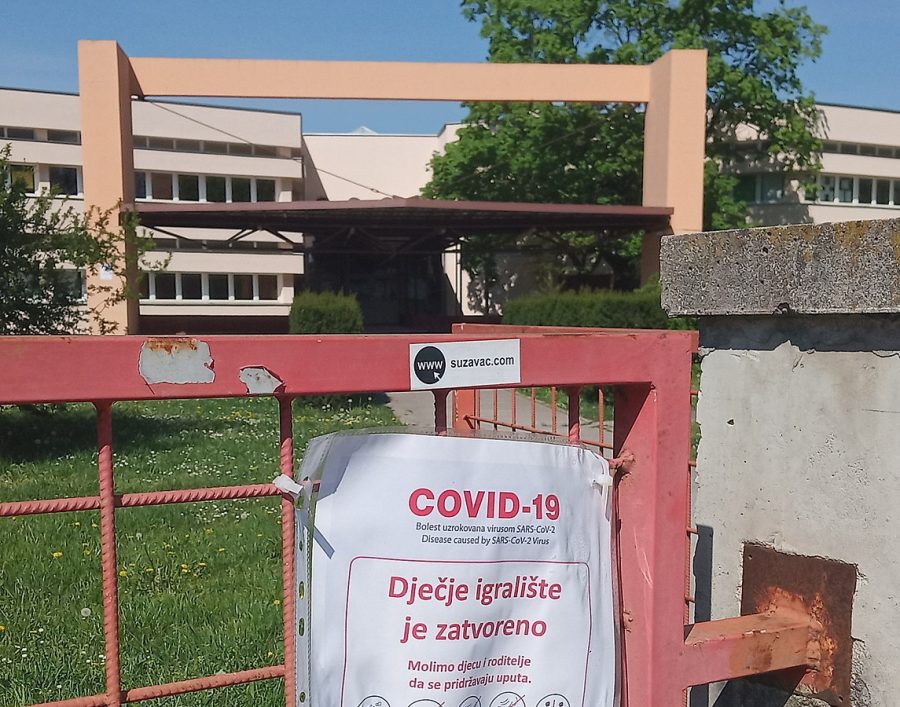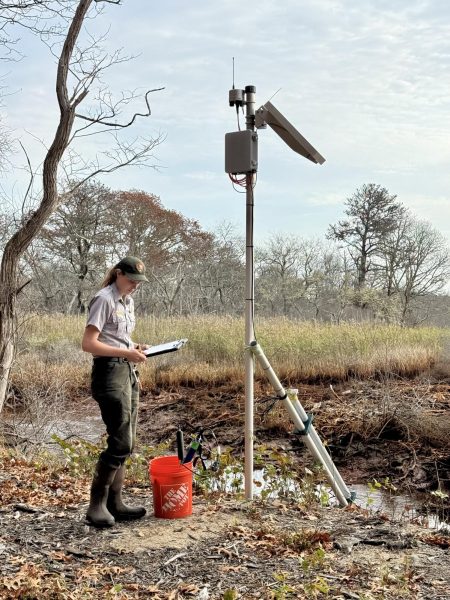How Other Countries Deal with COVID-19 When it Comes to Children
Around the world, 90% of the student population currently has school closures related to coronavirus, according to UNESCO. It’s no different here in the United States, with Hamilton-Wenham too closing and moving to online learning. While in the United States, we have one method of distance learning to continue to educate, different countries and organizations around the world have found other ways to teach kids, and also to keep them entertained, for all age groups. Below are some of the different approaches:
Countries such as Austria, Belgium, Finland, Japan, The Netherlands, and Israel, schools and childcare centers remain open, but with varying conditions and results.
Reuters reports that for Austria, schools are only open for those under 14 when adequate care cannot be given at home, while The Brussels Times says for Belgium, any child can attend childcare if the parents need it.
Yle, the Finnish public broadcasting company, says that Finland will keep childcare available for everyone with essential jobs. The government of The Netherlands has announced the same policy as Finland, and extended the availability of childcare to vulnerable children.
The Jerusalem Post says that Israel only has childcare available for children of hospital employees.
Reuters has reported Japan has closed all schools, but has left childcare centers open, which has lead to an influx of children in those centers. To adapt, these centers have adopted policies such as having all students sit in the same chair, and face in the same direction.
While public childcare may not be available in some countries, in others, their governments are working on different programs to ensure that parents can take care of their children.
According to the Prague Morning, in the Czech Republic, doctors with children at home are being taken out of work, and being replaced with final-year medical students so that they can take care of their children.
In Romania, paid days off are being offered to parents who have children under the age of 12, or in the case of disabilities, children under the age of 18, using pre-existing funds. The days are not offered to parents who have the opportunity to work from home, and is only offered to one parent at a time, reports The Romania Insider.
In other countries, schools have closed, but the ways to learn online vary from country to country. While most countries are now having students learn online, some have different ways that they are teaching their students.
In Belgium, for those students staying at home, The Brussels Times has said that the government is looking into televised learning. The idea of distance learning via television is not an uncommon one, as Mongolia and Morocco are also doing televised learning, as reported by The Diplomat, and USAID.
Greece has also looked into televised learning for their younger students, although their older students will still learn online, Euronews reports. For students without access to the internet or television, the Greek government also offers learning via telephone.
Guyana, while they leave schooling up to the parents, they are offering homeschooling help to parents online, by television, and by radio, Kaieteur News reports.
In Jordan, educators in refugee camps have struggled with making lessons available online due to a lack of traditional online learning tools and spotty internet access, and have moved to making lessons available via social media, something that is more readily available to the children in refugee camps, according to Dr. Ahmad Rababah in an interview with Global Citizen.
Some countries are still optimistic, and while schools may be closed, the dates of standardized testing have not changed. Africa News reported that Eritrea held exams from March 18th to March 23rd, despite cases first appearing on the 21st.
The government of the Netherlands has announced schools will be open when it is time for final exams, and the BBC reports that in South Korea, the Colligate Scholastic Aptitude Test, an eight-hour exam that operates similarly to the SAT or ACT tests in the United States, will still happen, but it has been pushed back.
Some places have flat out refused to cancel school, such as in Nicaragua, as reported by the Miami Herald. Parents who take their kids out of school due to the virus may face their children repeating the year. Bloomberg News reports that in Belarus schools are also open, where President Alexander Lukashenko has taken a hard stance on keeping the country normal. He said in an interview to state TV corporation ONO-TV, “It’s better to die standing than to live on your knees.” Reuters reports that Sweden has refused to cancel school for younger children, citing that they are less likely to contract, get sick from, and spread the virus, making the cons of canceling school for them outweigh the pros.
Ireland, on the flip side, has canceled school, but has not instituted any regulated homeschooling. While teachers can post work, it will not be graded, and schooling ultimately falls to what the parents want to do, The Irish Times reports. Other countries have put together more unique ways of tackling the school cancellations.
Lisbon radio station RFM reported that in the nearby country of Andorra, police played the hit song “Baby Shark” on the streets as a thank you for citizens staying at home, and also to provide entertainment for children.
Deutsche Welle reports that in Estonia, a country that has trained teachers in e-learning for nearly a decade, already has existing apps and school infrastructure which assisted with a transfer to online learning. Still looking for more resources, the Estonian government announced a “Hack-the-crisis,” where different companies, individuals, and organizations could pitch their idea for a new tool to “either help tackle the crisis or position Estonia well for the aftermath,” including their educational system. One result was a new section of an existing site called tutor.id, which provides “tutoring service for school kids who are in quarantine, they can learn and study for their exams, [and] also help teachers who are risking be out of their paid leave to earn extra income.”
While schools in Grenada are now closed, before the virus hit the country, schools began to prepare for potential exposure, and all schools were mandated to assign a temporary isolation room to put students in who were experiencing symptoms, according to Now Grenada.
In New Zealand, The Guardian reports that young children are on a “bear hunt” where people put teddy bears in their windows and in other places around their property visible from the street to entertain children walking with their families for fresh air. People are also mixing it up, giving the bears new outfits, new poses, and new locations to sit in. This is based on the book We’re Going on a Bear Hunt, a book by children’s author Michael Rosen, who also wrote the poem These are the Hands, an ode to healthcare workers which has been spread around a lot recently. He is more commonly known online for the many memes made of his stories, including the “Noice” meme.
Children in Norway were treated to a kids-only press conference by Prime Minister Erna Solberg, where they could virtually ask any question they have, Reuters reports.
Perhaps the most interesting approach has happened in Poland, where the website grarantanna.pl has been set up by the Polish government. Activities on this webpage include educational items, but also more entertaining things, such as video game challenges. In fact, in a competition that ended earlier this month, the government set up a Minecraft game where everyone got a plot of land to build whatever they wanted on, and were then judged, The Jerusalem Post reports.
Looking forward, American colleges have begun to prepare contingency plans for the 2020-2021 academic year. Boston University and Brown University among others have announced that while they are hoping for and planning for a fall 2020 semester, they are also preparing for a possible return to campus in early 2021.
We spoke with Joe Birkitt, a teacher from the UK, in order to gain more insight into the handling of the crisis. Currently, he teaches at Church of England secondary (middle + high school). The students do not pay fees to attend the school and funding is provided by the local authority.
Their online learning looks somewhat similar to that of Hamilton-Wenham. Birkitt said,
“I am setting 2 hours of work per week for Year 8 students (13&14-year-olds) on behalf of all of the teachers in my department. This does vary from school to school though. Some schools will be setting longer tasks, whereas other schools will be setting shorter tasks. Year 10 (14&15) and Year 12 (16&17) students have been prioritized due to being the next cohort to sit examinations and are therefore being set more regular, challenging work to ensure as little disruption to their education as possible. On top of this, I am reflecting on, and improving archived lessons ready to teach when schools return. This is also a valuable time to increase the amount of continual professional development (CPD) I am able to do. I have taken part in online conferences and seminars to better my teaching practice.”
While Hamilton-Wenham is operating under a credit/no credit system in the UK, “the work is not being graded. The students will have an assessed piece of learning in 4 weeks’ time which will allow [Birkitt] to assess their progress on the tasks set so far.”
Birkitt broke down the varying reactions of students of different ages, describing how
“The older the student, the better they have been able to handle the situation. Year 7 (11&12 years old) were particularly distressed in the lead up to school closures and they needed more emotional support than usual. Year 11 (15&16) and Year 13 (17&18) were also quite stressed as they were not sure what was going to happen to their exam certificates. This has now been resolved as teachers will provide exam results based on current and expected progress and outcomes.
He also offered some insight into how the teachers feel about the new learning structure, “Teachers are clearly worried about the outcomes of their exam classes but I believe most have sorted this out to the benefit of their students in most cases. Otherwise, teachers are mostly seeing this time as a learning opportunity. It is a time to improve knowledge of online teaching and learning and how this can be used most effectively in the future as well as the present. I think the time away from the classroom is also proving beneficial. As workload has reduced, CPD has increased and teachers are also being able to improve the quality of lessons they will teach when schools return.”
The technology being used in the U.K. draws a contrast to what Americans have been using in the United States.
While Zoom is playing a role, Birkitt explained how “Microsoft Teams and Google Classroom are the most commonly used modes of technology for communication and document sharing with students. They provide a secure network to communicate with students and also offer accountability in contrast to programs such as zoom. Students have been submitting completed work using apps such as ShowMyHomework and ClassCharts. These are apps that are commonly used in normal teaching, but have proved particularly useful in this current time.”
Only time will tell which avenue offered the best solution for at-home-learning, however, the contrasts are noticeable between Hamilton-Wenham’s strategies and the strategies of our neighbors across the pond.







